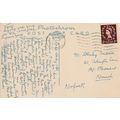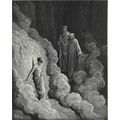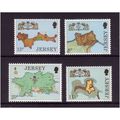Paisley, Renfrewshire - George A Clark Hall & Bridge - Reliable postcard 1906
- Condition : Used
- Dispatch : 2 Days
- Brand : None
- ID# : 125000622
- Quantity : 1 item
- Views : 664
- Location : United Kingdom

- Seller : justthebook (+1704)
- Barcode : None
- Start : Fri 28 Feb 2014 10:20:13 (BST)
- Close : Run Until Sold
- Remain : Run Until Sold
More Listings from This Seller view all
Seller's Description
- Postcard
- Picture / Image: George A. Clark Hall and Bridge, Paisley, Renfrewshire
- Publisher: Reliable series - stamped with Gerhard Blumlain & Co. & dated 26/4/1906
- Postally used: no
- Stamp: n/a
- Postmark(s): n/a
- Sent to: n/a
- Notes / condition:
Please ask if you need any other information and I will do the best I can to answer.
Image may be low res for illustrative purposes - if you need a higher definition image then please contact me and I may be able to send one.
------------------------------------------------
Postage & Packing:
UK (incl. IOM, CI & BFPO): 99p
Europe: £1.60
Rest of world (inc. USA etc): £2.75
No additional charges for more than one postcard. You can buy as many postcards from me as you like and you will just pay the fee above once. (If buying postcards with other things such as books, please contact or wait for invoice before paying).
Payment Methods:
UK - PayPal, Cheque (from UK bank) or postal order
Outside UK: PayPal ONLY (unless otherwise stated) please. NO non-UK currency checks or money orders (sorry).
NOTE: All postcards are sent in brand new stiffened envelopes which I have bought for the task. These are specially made to protect postcards and you may be able to re-use them. In addition there are other costs to sending so the above charge is not just for the stamp!
I will give a full refund if you are not fully satisfied with the postcard.
----------------------------------------------
Text from the free encyclopedia WIKIPEDIA may appear below to give a little background information (internal links may not work) :
*************
Paisley (Scottish Gaelic: PÃ islig) is the largest town in the historic county of Renfrewshire in the west central Lowlands of Scotland and serves as the administrative centre for the Renfrewshire council area. The town is situated on the northern edge of the Gleniffer Braes, straddling the banks of the White Cart Water, a tributary of the River Clyde.
The town, a former burgh, forms part of a contiguous urban area with Glasgow, Glasgow City Centre being 6.9 miles (11.1 km) to the east. The town came to prominence with the establishment of Paisley Abbey in the 12th century, an important religious hub in mediaeval Scotland which formerly had control over the other churches in the local area.
By the 19th century, Paisley had established itself as a centre of the weaving industry, giving its name to the Paisley Shawl and the Paisley Pattern. The town's associations with political Radicalism were highlighted by its involvement in the Radical War of 1820, with striking weavers being instrumental in the protests. As of 1993, all of Paisley's mills had closed, although they are memorialised in the town's museums and civic history.[1]
Formerly and variously known as Paislay,[2] Passelet, Passeleth, and Passelay[3] the burgh's name is of uncertain origin; some sources suggest a derivation either from the Brythonic word, pasgill, ""pasture"", or more likely, passeleg, ""basilica"", (i.e. major church), itself derived from the Greek Ãas????? basilika. However, some Scottish place-name books[which?] suggest ""Pæssa's wood/clearing"", from the Old English personal name Pæssa, ""clearing"", and leah, ""wood"". Pasilege (1182) and Paslie (1214) are recorded previous spellings of the name. The Gaelic spelling is Pà islig.
Paisley has monastic origins. A chapel is said to have been established by the 6th/7th century Irish monk, Saint Mirin at a site near a waterfall on the White Cart Water known as the Hammils. Though Paisley lacks contemporary documentation it may have been, along with Glasgow and Govan, a major religious centre of the Kingdom of Strathclyde. A priory was established in 1163 from the Cluniac priory at Wenlock in Shropshire, England at the behest of Walter Fitzalan (d. 1177) High Steward of Scotland. In 1245 this was raised to the status of an Abbey. The restored Abbey and adjacent 'Place' (palace), constructed out of part of the medieval claustral buildings, survive as a Church of Scotland parish church. One of Scotland's major religious houses, Paisley Abbey was much favoured by the Bruce and Stewart royal families. It is generally accepted that William Wallace was educated here.[citation needed] King Robert III (1390â1406) was buried in the Abbey. His tomb has not survived, but that of Princess Marjorie Bruce (1296â1316), ancestor of the Stewarts, is one of Scotland's few royal monuments to survive the Reformation.
Paisley coalesced under James II's wish that the lands should become a single regality and, as a result, markets, trading and commerce began to flourish. In 1488 the town's status was raised by James IV to Burgh of barony.
Many trades sprang up and the first school was established in 1577 by the Town Council. The Paisley witches, also known as the Bargarran witches or the Renfrewshire witches, were tried in Paisley in 1697. Seven were convicted and five were hanged and then burnt on the Gallow Green. Their remains were buried at Maxwelton Cross in the west end of the town. This was the last mass execution for witchcraft in western Europe.[4] A horse shoe was placed on top of the site to lock in the eivil. A horse shoe is still visible in the middle of this busy road junction todayâthough not the original. The modern shoe is made of bronze and bears the inscription, ""Pain Inflicted, Suffering Endured, Injustice Done"".[5]
type=printed postcards
theme=topographical: british
sub-theme=scotland
county/ country=renfrewshire
number of items=single
period=pre - 1914
postage condition=unposted
Listing Information
| Listing Type | Gallery Listing |
| Listing ID# | 125000622 |
| Start Time | Fri 28 Feb 2014 10:20:13 (BST) |
| Close Time | Run Until Sold |
| Starting Bid | Fixed Price (no bidding) |
| Item Condition | Used |
| Bids | 0 |
| Views | 664 |
| Dispatch Time | 2 Days |
| Quantity | 1 |
| Location | United Kingdom |
| Auto Extend | No |




 for 1 item(s)
for 1 item(s)















